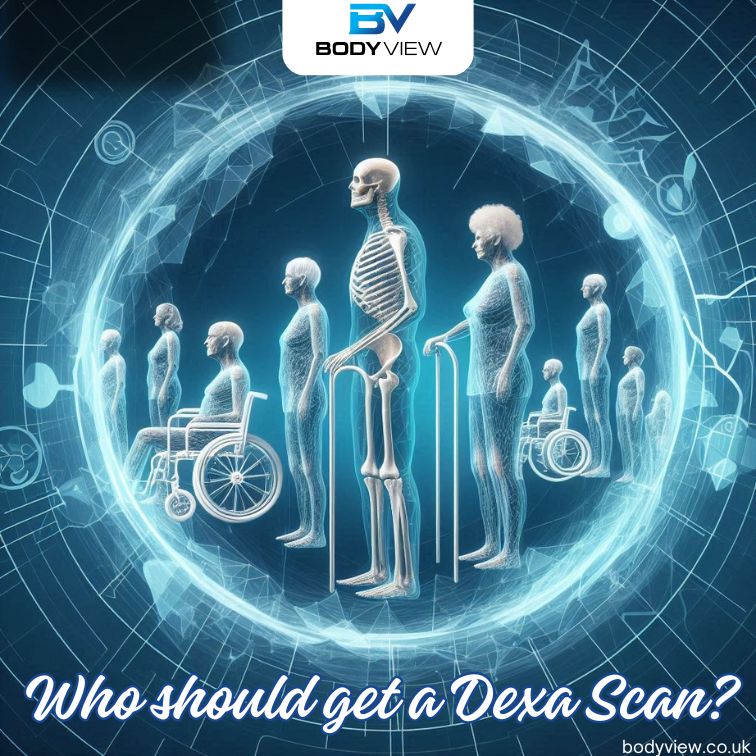
This diagnostic test has become the gold standard for assessing bone density and body composition. Whether you're in the UK or elsewhere, understanding the benefits and uses of a DEXA scan is essential for making informed health decisions. In this article, we’ll explore who should consider getting a DEXA scan, delve into the details of DEXA bone scan results, and discuss other important aspects like side effects and the potential for detecting bone metastases.
What is a DEXA Scan?
A DEXA scan, also known as Dual-Energy X-ray Absorptiometry, is a medical imaging technique that measures bone mineral density (BMD) and body composition. This test is highly accurate, providing detailed insights into the amounts of bone, fat, and lean muscle mass in your body. For those looking for a DEXA Scan UK without a GP referral. The scan is non-invasive, quick, and involves minimal radiation exposure, making it a popular choice for both medical and fitness assessments.
Who Should Get a DEXA Scan?
- Individuals at Risk for Osteoporosis
Osteoporosis is a condition characterised by reduced bone density, increasing the risk of fractures. It's common among postmenopausal women and older adults. A DEXA scan is the most reliable method for diagnosing osteoporosis and osteopenia (a precursor to osteoporosis). Those with a family history of osteoporosis or previous fractures should consider this test. In the UK, DEXA scans are recommended for women over 65 and men over 70, as well as younger individuals with risk factors. - People with Certain Medical Conditions
Conditions like rheumatoid arthritis, hyperthyroidism, and chronic kidney disease can lead to bone density loss. A DEXA scan can monitor bone health in these cases. Additionally, long-term use of corticosteroids and conditions like Cushing's syndrome may necessitate regular bone density checks. For those questioning, "can a DEXA scan show bone mets?" the test is not primarily designed for this purpose but can sometimes detect abnormalities that warrant further investigation. - Athletes and Fitness Enthusiasts
Athletes and fitness enthusiasts often seek "DEXA scanning" to get precise measurements of their body composition. Whether you're into bodybuilding, wrestling, or martial arts, understanding your muscle mass distribution and body fat percentage can optimise training and performance. Unlike BMI or skinfold tests, a DEXA scan provides a detailed and accurate picture, which is crucial for tailored fitness plans. - Individuals Undergoing Weight Management
For those on a weight loss journey, a DEXA scan can differentiate between fat loss and muscle gain, offering a more comprehensive view than traditional scales. This is particularly useful for those seeking to maintain muscle mass while losing fat. If you're considering a "private DEXA scan" many facilities offer this service, providing personalised and detailed results. - Older Adults
Ageing naturally leads to bone mass loss and muscle weakening, increasing the risk of falls and fractures. A DEXA scan can help older adults assess their bone density and muscle mass, informing strategies to maintain strength and prevent fractures. In the UK, it's a common preventive measure for individuals over 65. - Individuals with a Family History of Osteoporosis or Fractures
Genetics play a significant role in bone density. If you have a family history of osteoporosis or fractures, a DEXA scan can provide early detection and help in developing preventive measures. This is crucial for maintaining long-term bone health and reducing the risk of fractures.
The Procedure: What to Expect
A DEXA scan is a straightforward procedure, typically taking between 10 to 30 minutes. Patients lie on an open X-ray table while a scanning arm passes over their body. The test involves minimal radiation, far less than a standard chest X-ray. For those concerned about DEXA scan side effects, the procedure is generally safe with negligible risks.
Interpreting DEXA Bone Scan Results
DEXA scan results include a T-score and a Z-score. The T-score compares your bone density to that of a healthy young adult of the same sex, while the Z-score compares it to people of your age and sex. A T-score of -1.0 or above is normal, -1.0 to -2.5 indicates osteopenia, and below -2.5 suggests osteoporosis. For body composition, the scan provides detailed percentages of fat and lean mass, helping to guide fitness and health interventions.
Conclusion
A DEXA scan is an invaluable tool for assessing bone density and body composition, providing accurate and detailed insights essential for health and fitness. Whether you're at risk for osteoporosis, managing weight, or an athlete aiming for peak performance, a DEXA scan can offer the information you need. If you're in the UK or elsewhere, consider finding a "DEXA Body Scan to get started.